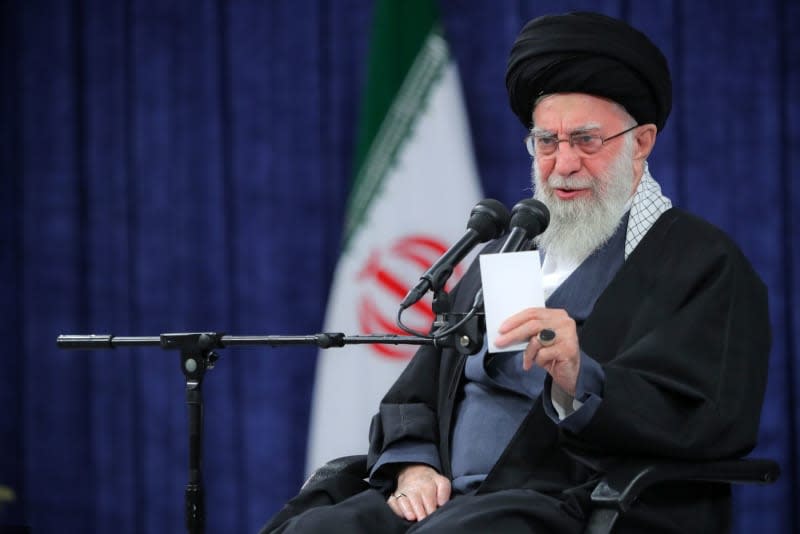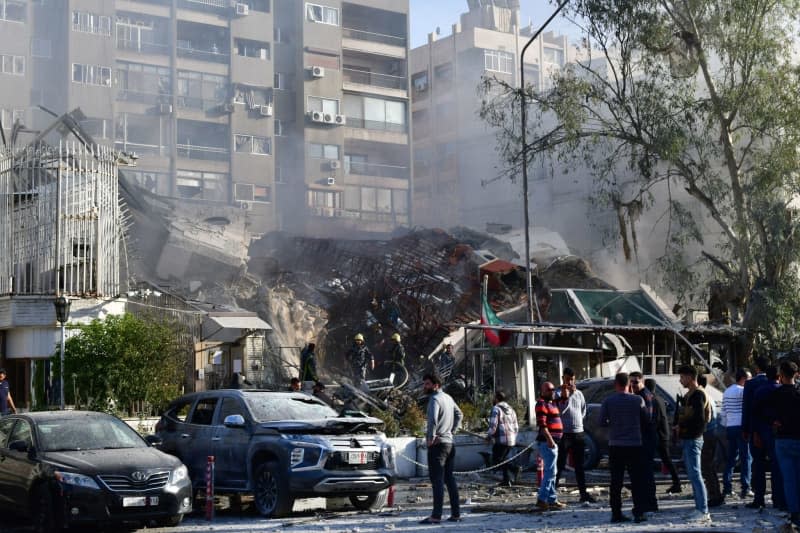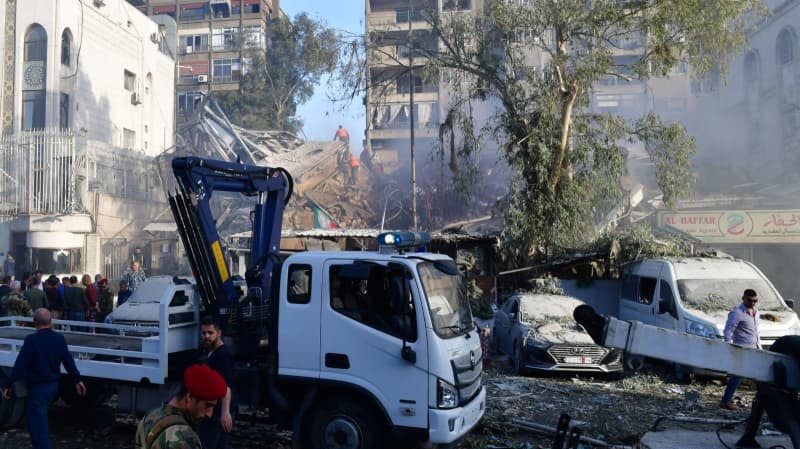Iran threatens Israel after two generals killed in strike on Damascus

- Oops!Something went wrong.Please try again later.
- Oops!Something went wrong.Please try again later.
Iran's Ayatollah Ali Khamenei was the latest to threaten Israel with retaliation a day after two Iranian generals were killed in a suspected Israeli attack on the Iranian embassy compound in Damascus.
"The malicious regime will be punished by our brave men," Iran's supreme leader said on Tuesday in a statement.
The attack destroyed an annex next to the Iranian embassy that served as the consulate in the Mezzeh neighbourhood of western Damascus.
The two brigadier generals, Mohammad Reza Sahedi and his deputy Mohammad Hadi Haji, were killed, the Islamic Revolutionary Guards Corps (IRGC) said. Sahedi was responsible for operations in Syria and Lebanon, according to the Iranian news agency Tasnim.
The IRGC are Iran's elite military force and are considered to be more powerful than the conventional army.
"We will make sure that they regret this and similar crimes, God willing," said Khamenei,
His comments came after Iranian President Ebrahim Raisi strongly condemned the attack and threatened to respond to what he called a "terrorist crime."
The Syrian Observatory for Human Rights, a Syrian war monitor, put the overall death toll from the attack in Damascus at 14, after more bodies were pulled from the rubble on Tuesday.
It said eight Iranians were killed, seven of them with the IRGC and one member from the pro-Iranian Lebanese Shiite Hezbollah movement.
Three Syrian fighters who work for the pro-Iranian militia known as the Syrian Resistance for the Liberation of the Golan were among the dead, it said. The group is armed and trained by Iran and supervised by Hezbollah.
Raisi termed Monday's attack a "gross violation of international rules" and warned that this "treacherous crime will not go unanswered," the official Islamic Republic News Agency (IRNA) reported.
A Swiss diplomatic representative was called in to hand over an "important diplomatic note" to the United States regarding the airstrike, Iranian Foreign Minister Hossein Amirabdollahian posted on X, the platform formerly known as Twitter.
The co-responsibility of the United States had been stressed in the meeting with the representative, Amirabdollahian posted. Further details were not provided. Switzerland has represented US interests in Tehran since diplomatic ties were cut some 24 years ago.
Hezbollah also emphasized that the attack would not be without consequences.
"Surely this crime will not pass without the enemy experiencing punishment and revenge," Hezbollah said in a statement on Tuesday. The Israeli enemy still believes that eliminating leaders can stop the people's determined resistance, it said.
Iran is Hezbollah's largest supporter in Lebanon. The Shiite militia fights politically but also violently opn the ground against Israel. It is one of Iran's “Axis of Resistance.”
With its own militia, it primarily controls the south of Lebanon on the border with Israel, Shiite-inhabited districts of the capital Beirut and the Bekaa Valley in the north of the country.
Hezbollah is also active in Syria, fighting alongside the government troops of President Bashar Al-Assad.
Several Arab states strongly condemned the suspected Israeli attack. A statement issued by the Saudi Foreign Ministry on Tuesday said the Kingdom categorically rejected targeting diplomatic facilities for any reason, calling this a "violation of international diplomatic laws and the rules of diplomatic immunity."
Egypt expressed a similar view, standing in solidarity with Syria and respecting its sovereignty.
Qatar called the attack a "blatant violation" of international agreements and conventions in a Foreign Ministry post on X. The Foreign Ministries of Jordan and Lebanon published similar statements.
The Israeli government has not commented on the strikes in line with regular practice following attacks outside Israel's borders.
Iran and Israel see each other as archenemies, with the IRGC playing a key role in supporting anti-Israeli forces in Syria and Lebanon.
The Israeli Air Force repeatedly bombs targets in neighbouring Syria in an attempt to prevent Iran and its allied militias such as the Lebanese Hezbollah from expanding their military influence in the country.
Attacks have increased since the Gaza war began almost six months ago. Late on Sunday, Syria said Israel attacked an area near Damascus with four missiles, wounding two civilians.



